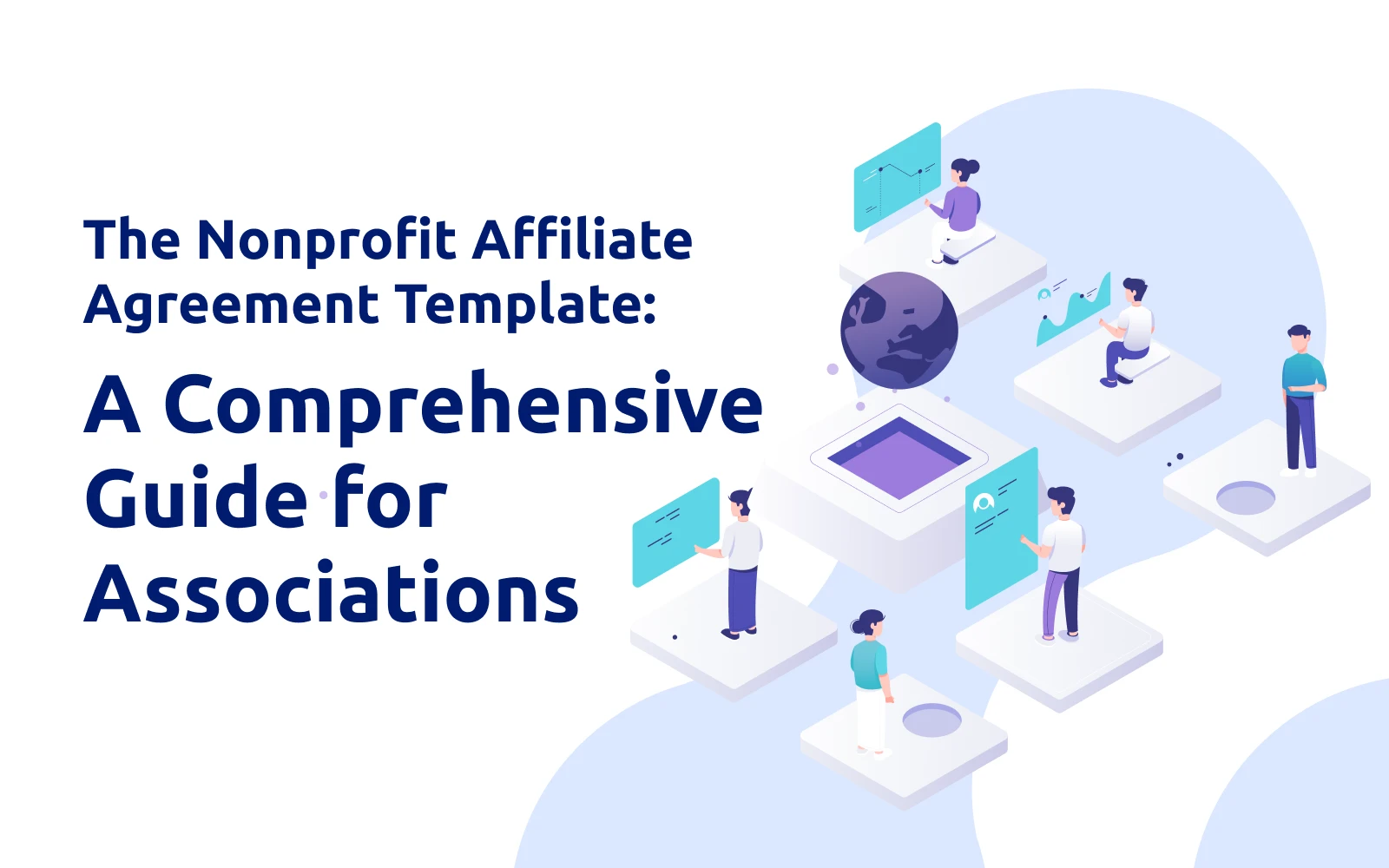

The global nonprofit sector operates based on principles of trust, collaboration, and mutual benefit. To formalize and streamline these critical relationships, many nonprofits have come to rely on affiliate agreements.
These legally binding contracts establish the terms and conditions for collaboration, outlining mutual expectations and obligations. However, the intricacies of these documents can be daunting, especially for newcomers. That's where a Nonprofit Affiliate Agreement Template can make all the difference.
These templates are far from a mere 'fill in the blanks' document; they offer a detailed structure to follow, ensuring that all key components are addressed. They allow for consistency, ease of use, and, importantly, legal protection.
This guide will help you understand the specifics of these templates, their benefits, and how to use them effectively.
An affiliate agreement, in the context of nonprofit organizations, is a contractual agreement outlining the terms and conditions of an affiliation between two entities. In essence, it establishes a relationship where each party works toward a shared goal, perhaps related to fundraising, event management, or public outreach.
These agreements can vary widely depending on the specifics of the relationship, but they generally include details about the obligations and rights of each party, the scope and limitations of the relationship, terms of agreement termination, and confidentiality clauses.
A well-drafted agreement can ensure that both parties' interests are protected while maintaining transparency about mutual expectations.

Regardless of the specifics of a nonprofit affiliation, every nonprofit affiliate agreement includes these components:
These are the backbone of a good Nonprofit Affiliate Agreement, ensuring a comprehensive, clear document that leaves no room for ambiguity.
Templates serve as a guide, enabling nonprofits to create well-structured and legally sound agreements.
They ensure consistency, making it easier for nonprofits with numerous affiliates to manage these relationships. Using a template also saves valuable time, allowing organizations to focus more on their core mission.
While templates offer several advantages, it's important to remember they're meant to serve as a starting point. Every affiliate relationship is unique and thus requires some degree of customization in the agreement.
Here are some examples from authentic organizations that will make it easier for you to draft an effective and comprehensive agreement. These examples will give you valuable insights that will help you create a legally sound agreement tailored to your requirements.
An agreement like this provides a clear, detailed, and structured framework for affiliations, making it an excellent template for nonprofit affiliate agreements.
Its structure contains:
This is another great example of a nonprofit affiliate agreement that provides a clear description of the affiliation program. It includes specifics like how the program works, how affiliates earn commissions, and any other key details about the program.
Furthermore, the document highlights the following points, which make it an effective contract.

Customizing a template isn’t as daunting as it might initially seem. With careful thought and consideration, you can turn the template into a bespoke agreement that aligns with your nonprofit's unique needs.
Here are some steps to get you started:
Remember, customization is key to harnessing the true potential of a nonprofit affiliate agreement template. Although the process requires a careful approach, it ensures that the agreement is tailored to your unique circumstances and provides the best possible framework for a fruitful affiliate relationship.
While templates are a useful starting point, it's important to remember that they do not substitute professional legal advice. Every nonprofit's circumstances and needs differ, and the law surrounding affiliate agreements can be complex and vary by jurisdiction.
It's prudent to consult with a legal professional to review the modified template. They can provide valuable insight into any missing or unnecessary elements and ensure the agreement aligns with current laws and regulations.
Consulting a legal professional will ensure that your agreement is not only robust and comprehensive but legally sound as well.
Below are samples of nonprofit affiliate agreements that you can download. However, keep in mind that these are simply examples and should be tailored to your organization's specific needs. It's always a good idea to consult with a legal professional before finalizing any type of legal document.
A nonprofit affiliate agreement serves to clearly outline the roles, responsibilities, and expectations of both the nonprofit organization and the affiliate. It's a tool for transparency and mutual benefit.
Yes, a nonprofit affiliate agreement can be amended if both parties agree to the changes. This usually requires a formal amendment to the original agreement.
Non-compliance with the agreement's terms can lead to the termination of the affiliate relationship or legal action, depending on the specifics outlined in the agreement.
Ideally, a nonprofit affiliate agreement should be drafted by a legal professional experienced in nonprofit law to ensure it meets all necessary legal requirements and best serves the interests of the nonprofit.
A nonprofit affiliate agreement should be reviewed periodically to ensure it continues to meet the needs of the nonprofit and the affiliate. Any changes in the relationship or the legal landscape might necessitate changes to the agreement.
Yes, a nonprofit can have multiple affiliate agreements. Each agreement should be tailored to the specific affiliate and the unique relationship between the nonprofit and the affiliate.